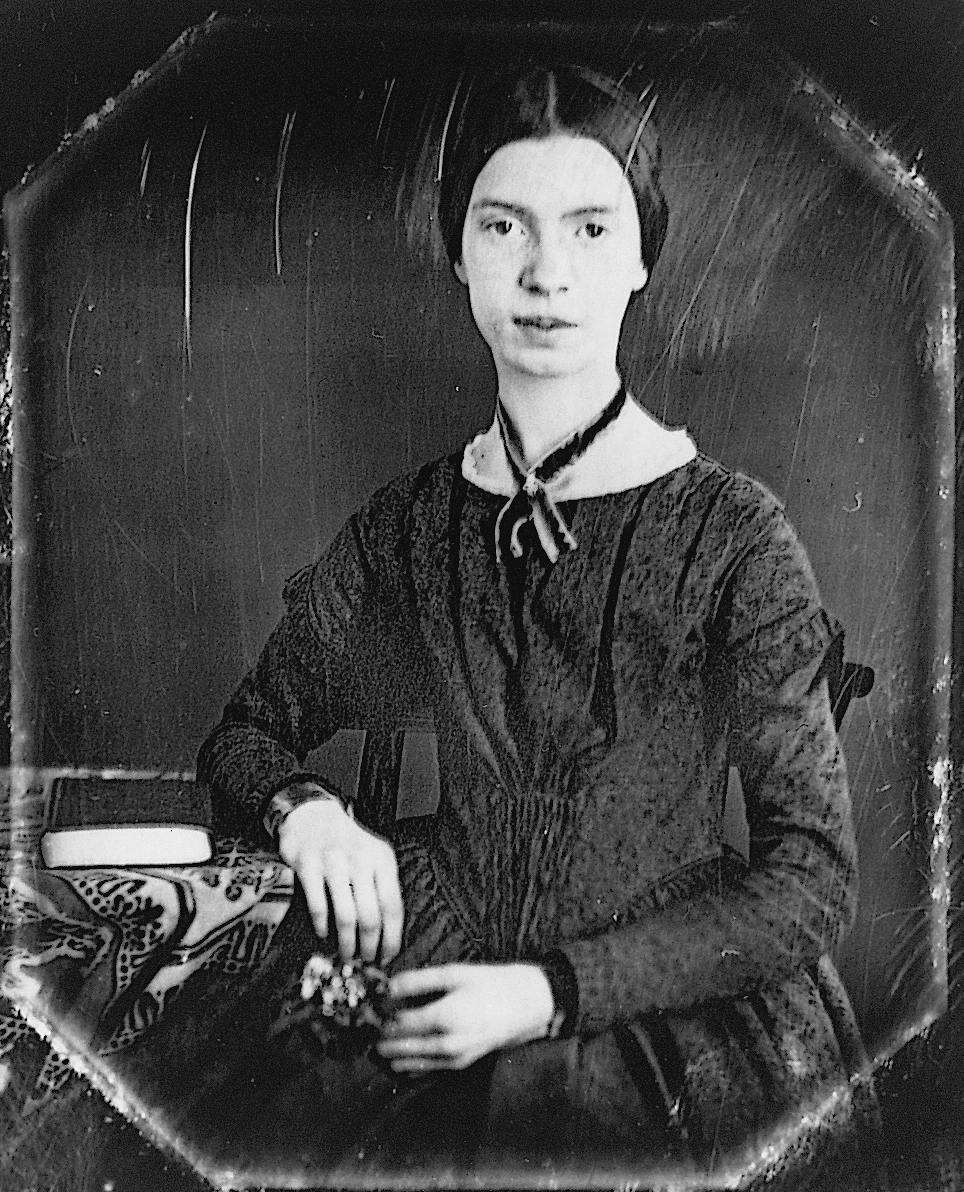Dickinson, Emily (1830-1886), was an American poet. Dickinson and Walt Whitman are considered the two most gifted poets in American literature. Like Whitman, she was influenced by the writings of American author Ralph Waldo Emerson. In her verses, Dickinson expressed Emerson’s late pessimism. Many of her poems reflect the alienation of American intellectuals after the American Civil War (1861-1865).
Her life.
Emily Dickinson was born in Amherst, Massachusetts, on Dec. 10, 1830. She was reclusive, and much about her is unknown. She never married, and after turning 30, seldom saw anyone other than her immediate family.

Dickinson’s seclusion from society has fascinated her readers. Scholars believe that she chose to think and write in, as she wrote, “her own Society,” rather than in the narrow-minded literary establishment of her time. This establishment expected female writers to confine themselves to domestic subjects and sentimental observations. Furthermore, an unmarried professional woman in America had few opportunities in the 1800’s. Therefore, Dickinson chose to remain in her comfortable, upper-middle-class home. Although her choice no longer seems so strange, people in her town viewed her as a curiosity and finally resented her unavailability.
Dickinson always wrote as what she called the “supposed person.” This person never tired of examining the unique facts of existence. Hidden away on the second story of her parents’ home, she analyzed practically every aspect of nature in poems that she began to bind into small books that were called fascicles.
At about the age of 30, Dickinson began to look intensely at life itself, rather than looking for the normal expectations of life. While the Civil War raged, she produced the most and best of her poems. The poet continued to write in the 1870’s but at a much slower pace. Probably one of her best poems, however, was written in this period of decline. Called “A Route of Evanescence,” it describes the fluttering ascent of a hummingbird. For Dickinson, this erratic ascent was also the route of experience. Life was finally inscrutable, and its joy was to be found in studying its paradoxes. Dickinson died on May 15, 1886.
Her poems.
The Complete Poems of Emily Dickinson (1955) contains 1,775 poems. Scholars generally agree she did not wish to publish any of them, but at least 11 of her poems appeared in print during her lifetime without her permission. One of them, “Success Is Counted Sweetest,” teaches that experience resides in the ratio between success and failure rather than in either of the two exclusively.
The mere experience of being alive dominates Dickinson’s poetry. Her poems show how Dickinson was sensitive to both the ecstasy and the anguish of everyday experience. In “A Narrow Fellow in the Grass” her crisp imagery conveys the sudden and flashing fear of coming upon a snake in the tall grass:
Loading the player...Yet when a Boy, and Barefoot— I more than once at Noon Have passed, I thought, a Whip lash Unbraiding in the Sun
Dickinson's A Narrow Fellow in the Grass
Dickinson daily dressed in white, as if to mock the traditions of marriage. She often pondered the consequences of her life style:
Loading the player...I’m “Wife”—I’ve finished that— That other state— I’m Czar—I’m “Woman” now— It’s safer so—
I'm Wife—I've finished that by Emily Dickinson
The “lover” in many of her poems is not a potential husband and “master” but death and eternity. In what many critics believe is her greatest poem, “Because I Could Not Stop for Death,” a carriage that brings her gentleman caller holds “but just Ourselves/And Immortality.”
The point of view of most of her poems reinforces her theme that our most important moments are over as soon as they begin. Dickinson’s “I Heard a Fly Buzz” reflects this theme, describing with beauty and simplicity a dying person’s impressions at the moment of death.
Loading the player...Dickinson's I Heard a Fly Buzz
Often her poems open with a clear story line, but quickly fade at their close into silence, as if to suggest her inquiry continues in the subconscious. As she wrote in another poem, it was the poet’s job to distill “amazing sense/from ordinary meaning.”
See also American literature (The Era of Expansion); Because I Could Not Stop for Death.
